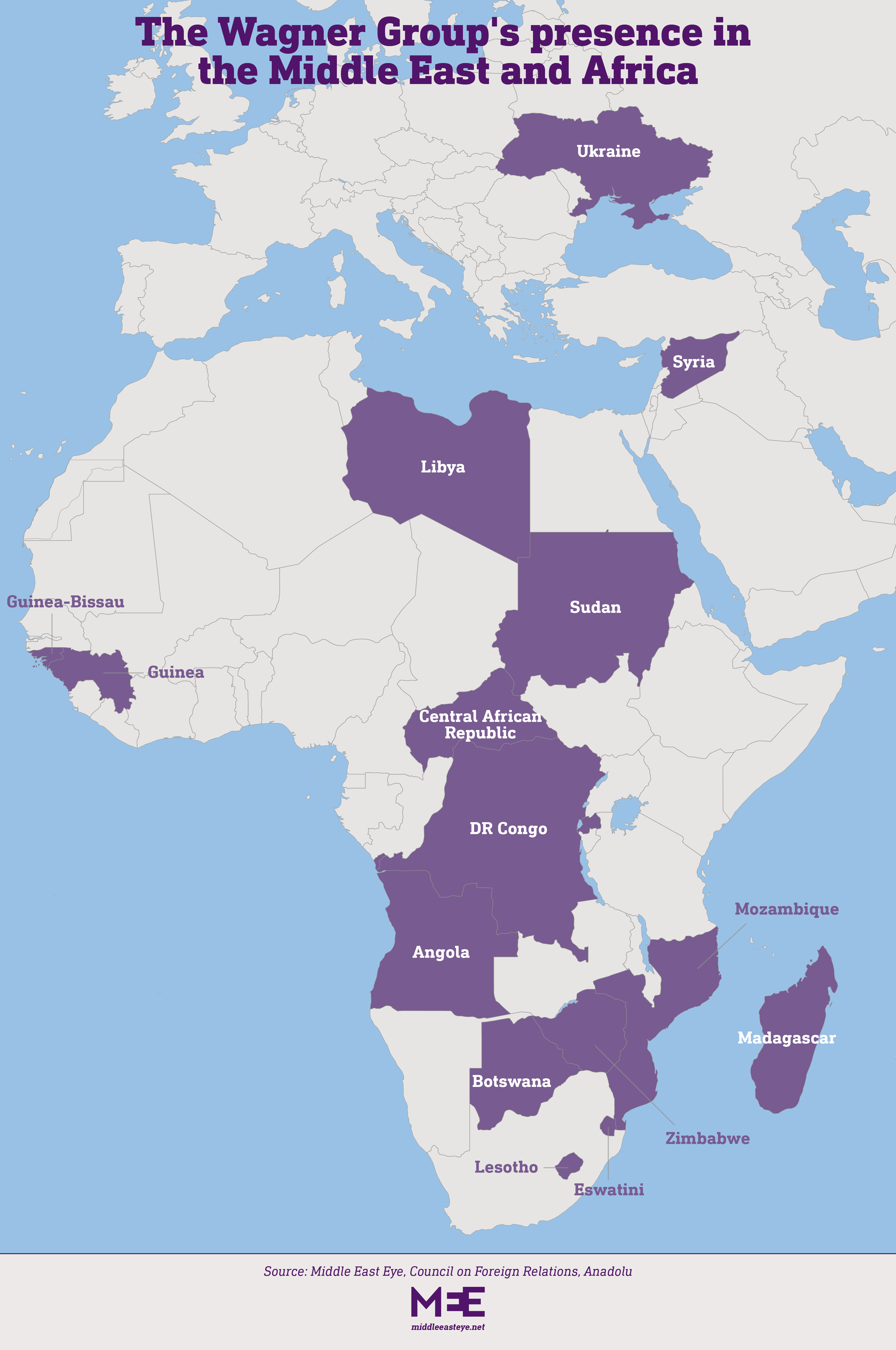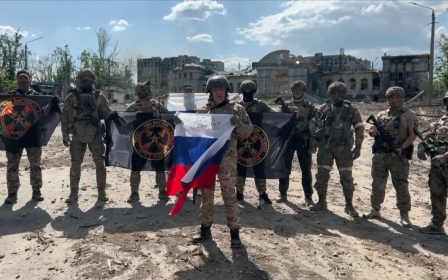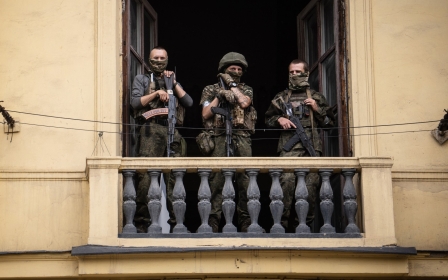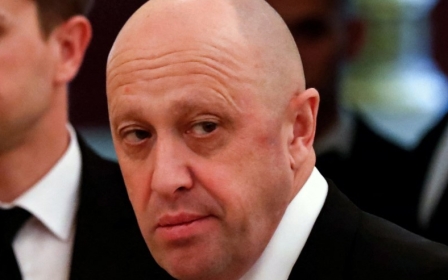Wagner: Leaked images show Prigozhin 'disguised as Libyan commander'
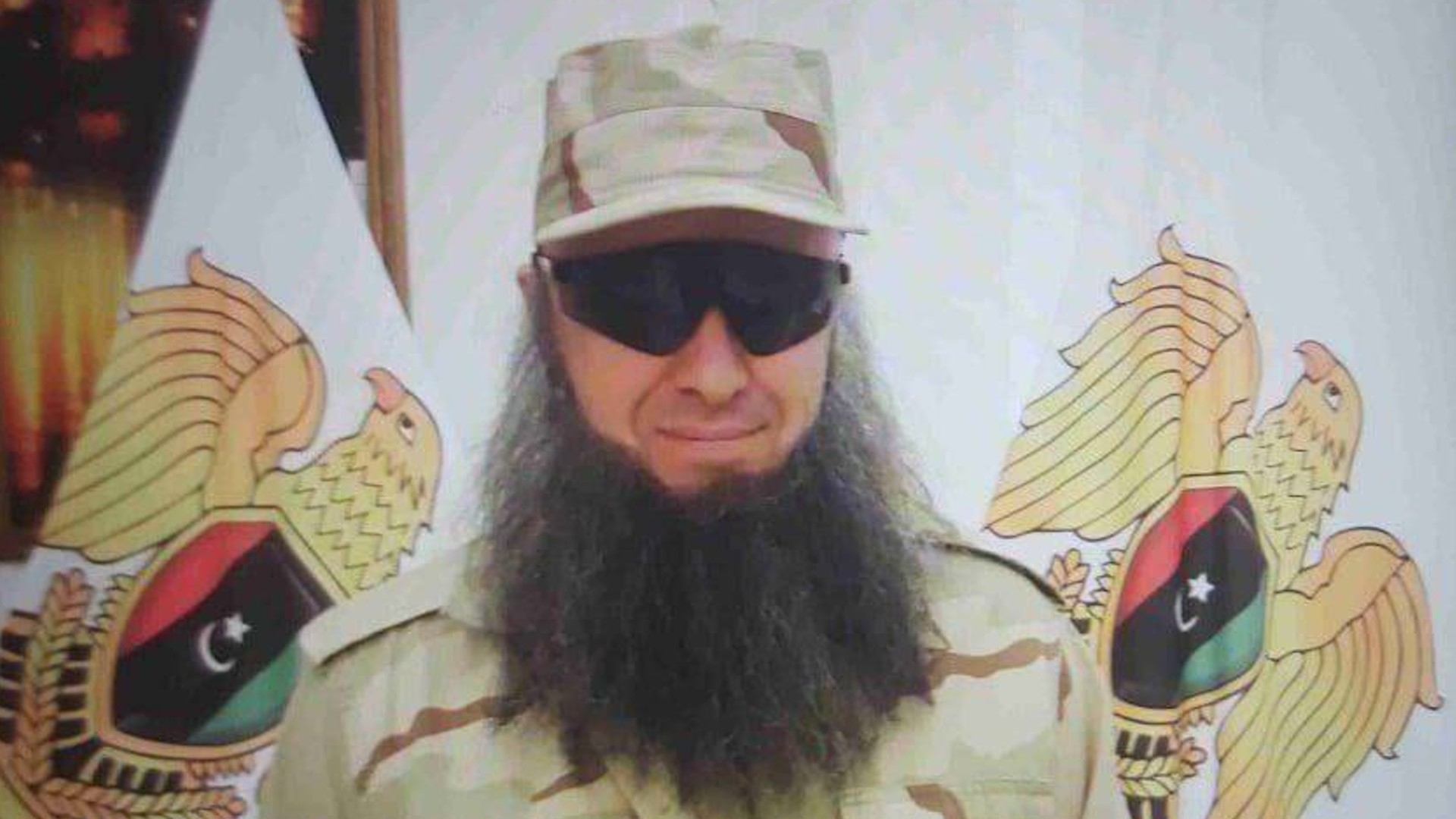
Leaked photographs appear to show the leader of the Russian Wagner Group Yevgeny Prigozhin in various disguises as officials and figures from Middle Eastern and African countries where the mercenary group is active.
The images first appeared on Russian Telegram channels, shortly after state media published footage and photographs of armed officers raiding Prigozhin's mansion in St Petersburg.
The mercenary leader oversaw a short-lived mutiny against the Kremlin two weeks ago.
Wagner fighters crossed into Russia from Ukraine and claimed to have captured army headquarters in Rostov-on-Don in southern Russia on 24 June, before advancing northwards towards the capital Moscow.
Prigozhin called off the rebellion hours later, and it was announced that he would be exiled to Belarus as part of a truce agreed with Russian President Vladimir Putin and mediated by Minsk.
New MEE newsletter: Jerusalem Dispatch
Sign up to get the latest insights and analysis on Israel-Palestine, alongside Turkey Unpacked and other MEE newsletters
However, on Thursday, Belarusian leader Alexander Lukashenko said that Prigozhin - whose whereabouts remain a mystery - was in Russia.
In the disguised photographs, first circulated on Thursday morning, the bald-headed and normally clean-shaven Prigozhin is seen wearing a number of makeshift wigs and fake beards, and donning military clothes.
Caption: Found pictures of unsuccessful auditions for the lead role in the comedy "The Dictator"
According to captions shared on several Russian Telegram accounts, the disguises allegedly show the leader as an employee of Sudan's defence ministry, a diplomat from Abu Dhabi, a senior lieutenant from Libya's Benghazi, a Libyan colonel from Tripoli, a Syrian merchant, and a field commander called Mohammed from an unknown country.
Middle East Eye could not verify the authenticity of the images.
Sledgehammer, wigs, and cash
On Wednesday evening, pro-Kremlin media outlet Izvestia published photos and videos taken during a raid on Prigozhin's two-storey mansion.
Items pictured included weapons, boxes containing around $108m in cash, and a sledgehammer with the inscription "for use in important negotiations".
The huge residence includes a helipad, a swimming pool, a sauna, a gym, a medical room, and a private prayer room.
Images of gold bars, several passports, a stuffed alligator, and a framed photo that purportedly shows the severed heads of Prigozhin's enemies were circulated by state-backed media.
There were also a number of wigs stored in his residence, which may back up the veracity of the leaked photographs of Prigozhin in Arab and African disguises.
Wagner mercenaries are active in several countries around the world, including in the Middle East and Africa.
The brief mutiny last month was met with both hope and trepidation from officials, media, and activists from those countries.
Wagner has been militarily active in Syria since 2015 when its mercenaries were deployed to fight alongside President Bashar al-Assad’s forces. In 2018, US forces carried out strikes against Wagner fighters - in what was one of the only military confrontations between American and Russian forces to have taken place since before the Cold War began.
Its mercenaries have also been a key player in Libya, helping military commander-turned-warlord Khalifa Haftar gain control of the southern and eastern regions of the country.
In Sudan, the group is believed to be active primarily in a security capacity to protect resources, including lucrative goldmines.
Wagner is also active in Mozambique, Madagascar, Mali, and the Central African Republic (CAR), amongst several other African states.
Middle East Eye delivers independent and unrivalled coverage and analysis of the Middle East, North Africa and beyond. To learn more about republishing this content and the associated fees, please fill out this form. More about MEE can be found here.


